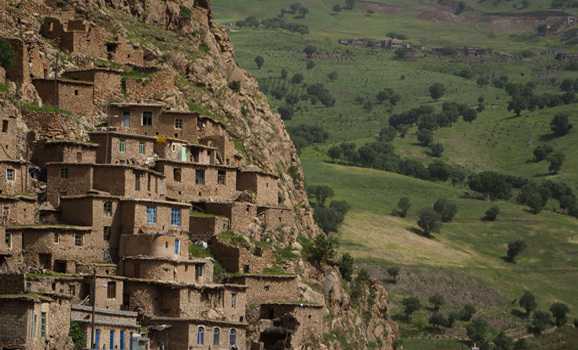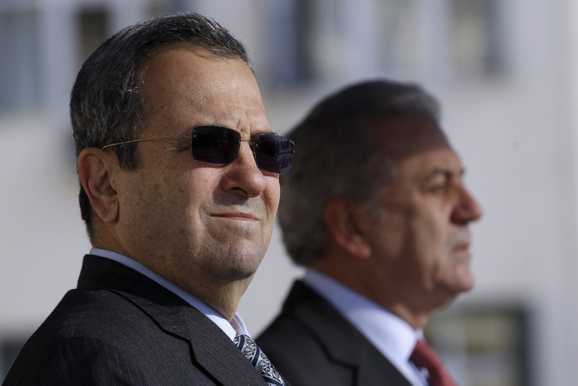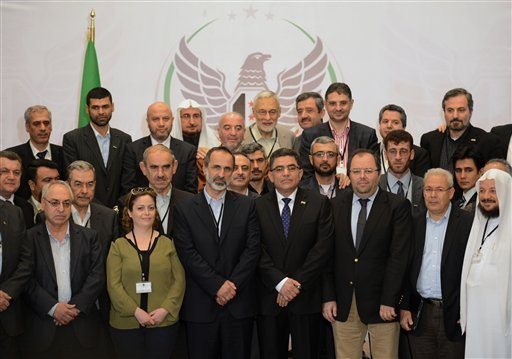By Steven Simpson
Turkey’s Islamist prime minister, Recep Tayyip Erdoğan, is once again engaging in his favorite political pastime – Israel-bashing.
Late last month at a U.N. convention held ironically to promote religious tolerance, Erdoğan lambasted Israel by calling Zionism “a crime against humanity.” Indeed, Erdoğan even outdid the biggest anti-Israel institution in the world – the United Nations – which in 1975 passed its infamous “Zionism is Racism” resolution.
But Erdoğan’s continuous contempt for Israel shows the arrogance and hypocrisy of Turkey. For if there has ever been a country in the Middle East guilty of committing crimes against humanity, it is Turkey. Indeed, next to Nazi Germany and Soviet Russia, 20th-century Turkey ranks right up there when it comes to massacres, rapes, expulsions, and rapine perpetrated against ethnic and religious minorities – namely Armenians, Greeks, and Kurds.
Before documenting Turkey’s crimes against other people, it should first be noted that today’s Turkey has for all intents and purposes become an Islamic republic in everything but name only. The so-called “Turkish-Israeli” alliance has been in tatters since Erdoğan came to power in 2003. Aside from veering Turkey on an Islamist course – and cause – the Turks (even with Obama’s “apology tour” that began in Turkey back in 2009) remain extremely anti-American. This writer back in 2010 documented Erdoğan’s democratic ascent to power, his ideology and goals, and what an Islamist Turkey means to America, Israel, and the West in general.
Regrettably, Israel allowed herself to once again be verbally slapped down by the vitriolic and sanctimonious Erdoğan. With Erdoğan’s latest diatribe, all Israel could weakly say was “that it was a sinister and mendacious comment.” America, fearful of losing its only Muslim NATO “ally,” also was quite quiet when it came to Erdoğan’s latest bombastic tirade.
Ironically, U.S. Secretary of State John Kerry was on his way to Turkey to meet with officials when Erdoğan had his latest verbal apoplectic attack against Israel. Though the mainstream media made it out that the U.S. was furious with Erdoğan, Kerry simply called the comments “objectionable.” Indeed, Erdoğan upbraided Kerry when Kerry had apologized for being late to a dinner with the Turkish prime minister after holding talks with Turkey’s foreign minister, Ahmet Davutoglu. Mr. Kerry had commented to the prime minister that he had held lengthy discussions with Mr. Davutoglu. An irritated Erdoğan then acerbically stated to Kerry that they “must have spoken about everything so there is nothing left for us to talk about.” Kerry meekly responded “that there’s a lot to talk about.” However, it remains unknown what the two actually discussed, and if Kerry raised any objections to Erdoğan’s statements on Israel, no one has yet reported on the event.
This now leaves us with Erdoğan’s hypocrisy in lecturing Israel about supposed “war crimes” and leads us to actual war crimes perpetrated by Turkey during the 20th century – crimes that still go on today against the Kurds. It is a record that not only has caused oceans of blood to be spilled, but still has repercussions felt to this day.
Probably the most well-known war crime that Turkey engaged in was the slaughter – if not genocide – perpetrated against the Armenians in the first two decades of the 20th century. In fact, the Turks were already slaughtering Armenians in the late 19th century in what has come to be known as “the Hamidian massacres.” Estimates of the slaughter range from hundreds of thousands to millions. In any event, Turkey has consistently and constantly denied that such crimes against the Armenians took place. Turkey is so sensitive to the charge of genocide that when the U.S. Congress in 2010 finally passed a resolution condemning this crime, Turkey threatened “serious consequences” to the “partnership” between America and Turkey. Ironically, Barack Obama, who had the audacity to say back in 2007 that “nobody is suffering more than the Palestinian people,” sought to stop the congressional resolution on the Armenian genocide.
Continuing with Turkish war crimes, and the hypocrisy of the neo-Ottoman crypto-Sultan Erdoğan, there were the massacres and expulsions of the Greeks from their ancestral homelands. This is another Turkish crime against humanity that is little-known, and even less spoken or written about. “The Pontian Genocide” took place between the years of 1916 and 1922. Again, estimates vary in the casualty rate, but the slaughter could have been as close to 1,000,000 Greeks killed. This doesn’t even take into account the surviving 1.5 million Greeks who lived in Asia Minor (Anatolia) for millennia before being expelled by the Turks to European Greece during this era.
Finally, there are the Kurds. If there was ever an authentic Middle Eastern minority of Muslims that deserves a nation-state, it is the Kurds. While Islamist governments in Iran and Turkey (as well as the Arab world) talk about “Islamic solidarity” when it comes to the so-called “Palestinians,” there is not even a syllable of talk regarding the plight of the Kurds. The Kurds have been killed and suppressed by Arab, Persian, and Turk for centuries, all of whom see the legitimate aim of the Kurds to establish their own state as a threat to the status quo of continuous Arab, Persian, and Turkish imperialism.
While the Kurds are spread out over Syria, Iraq, Iran, and Turkey, it has been in the last country that the Kurds have basically been written out of history by the Turks. The Turkish quest to deny any semblance of a Kurdish existence has been so bizarre that Turkey even banned the Kurdish language during the years 1983-1999 and routinely referred to them as “mountain Turks.” To this day, Turkey routinely crosses the Syrian and Iraqi borders to fight against “Kurdish terrorists.”
This background on Turkish war crimes is just a brief sketch of the brutal actions that Turkey has committed over the decades (if not centuries). The next time the arrogant, bellicose, and venomous Erdoğan along with his fellow Islamists lectures Israel about “crimes against humanity,” they should look in the mirror and admit to true war crimes.
Indeed, Israel – and America, for that matter – would do history a great justice if they reminded Turkey in the strongest language possible, of the Turks’ bloody crimes against their own minorities, instead of sitting back and allowing Turkey to pontificate about Israel’s nonexistent “crimes against humanity.” Continued silence will only strengthen bullies and thugs like Erdoğan, lend credence to his outlandish slander, and allow Turkey to continue to rewrite history in its own image.
Steven Simpson has a B.A. in political science with an emphasis on Middle Eastern studies, as well as a Master’s Degree in library science. Aside from contributing to the American Thinker, he has contributed in the past to such publications as the Canada Free Press, P.J. Media, Front Page Magazine, and the Gatestone Institute. He can be reached at [email protected].
Read more: http://www.americanthinker.com/2013/03/turkeys_erdogan_and_the_zenith_of_hypocrisy.html#ixzz2OG3ldSHs






